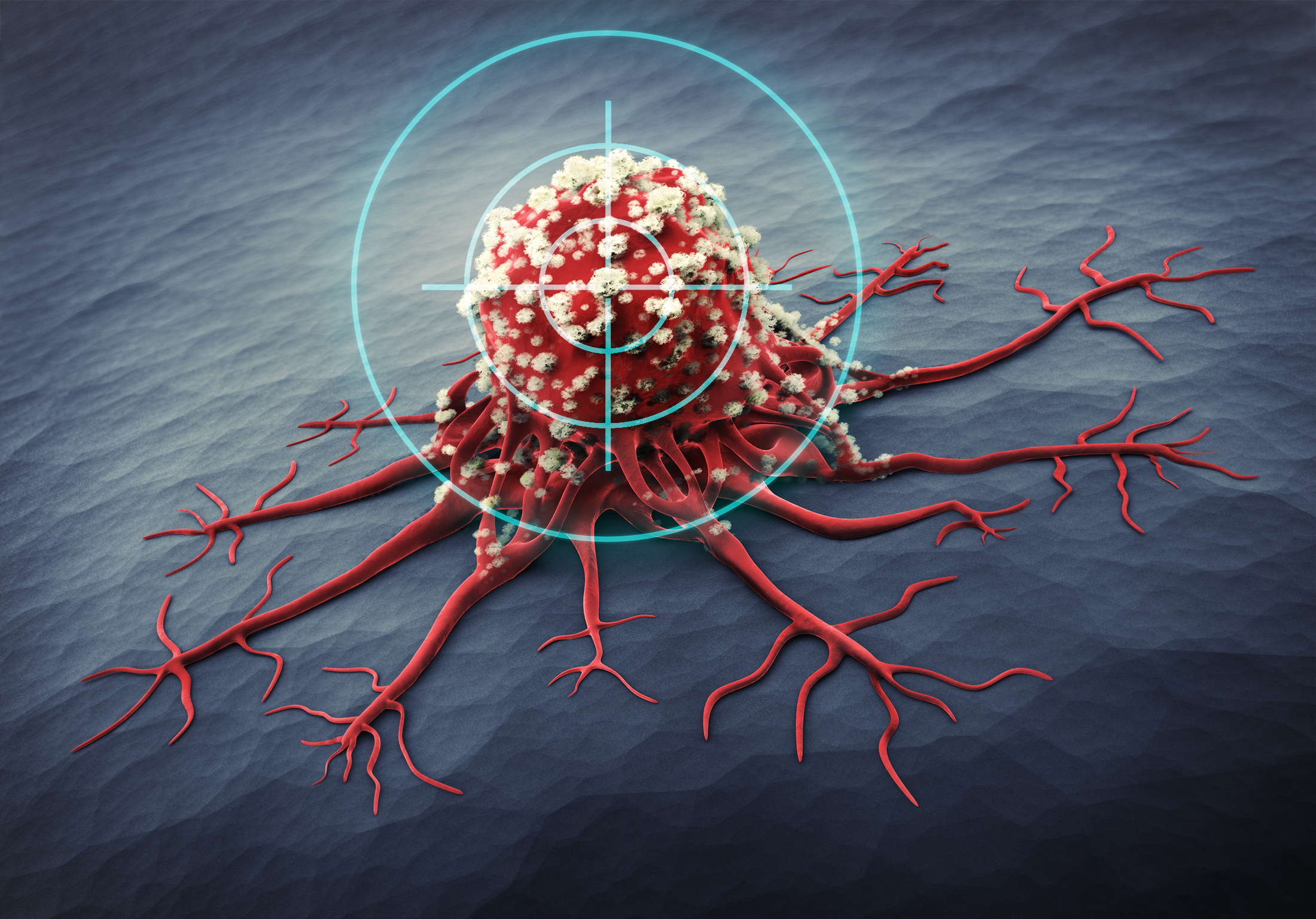Get Easy Health Digest™ in your inbox and don’t miss a thing when you subscribe today. Plus, get the free bonus report, Mother Nature’s Tips, Tricks and Remedies for Cholesterol, Blood Pressure & Blood Sugar as my way of saying welcome to the community!
DHA: The omega-3 that’s like poison to tumors

If you’re taking a fish oil supplement (and I hope you are!), it’s probably because you know that omega-3 fatty acids can protect you from hypertension, stroke and heart attack.
You make have also read that people with high omega-3 levels live longer than people with less.
Or perhaps you’ve seen a mild, age-related decline in your memory, or are experiencing mild depression. Nothing big — but you’d like to keep it from progressing, and you know that omega-3 fatty acids can help.
Unless you eat at least two 5-ounce portions per week of oily fish such as salmon or sardines, supplements are your best bet for getting all the health benefits of omega-3s.
Well, now there’s even more good news about omega-3 fatty acids…
A new study reports that one of the omega-3 fatty acids, in particular, may also help to slow the growth of cancerous tumors.
DHA – the omega-3 that kills cancer cells
The majority of scientific research on omega-3s focuses on DHA and EPA. In groundbreaking research, Belgian scientists have shown that the omega-3 known as docosahexaenoic acid, or DHA, literally poisons malignant tumor cells.
Olivier Feron and a team of pharmacologists from the Université Catholique de Louvain examined cancer cells as they were exposed to various fatty acids.
“We soon found that certain fatty acids stimulated the tumor cells while others killed them,” the researchers explained.
To protect themselves from oxidative damage and cell death, tumor cells were able to isolate most fatty acids within the cell.
But DHA proved to be the exception.
In the presence of a large amount of DHA, the tumor cells were overwhelmed and could not isolate the DHA, causing ferroptosis, a type of cell death linked to the oxidation of certain fatty acids.
The team also administered a DHA-enriched diet to mice with tumors. The result: tumor development was significantly slowed compared to that in mice on a conventional diet.
This exciting discovery opens the door to new research, and the possibility of developing a new, non-drug treatment for cancer.
Making sure you get enough DHA in your diet
So, how do you get more DHA into your diet? And how much should you aim for?
The researchers state: “For an adult, it’s recommended to consume at least 250mg of DHA per day. But studies show that our diet provides on average only 50 to 100 mg per day. This is well below the minimum recommended intake.”
DHA is found in higher quantities in fatty fish, fish oil, shellfish and algae, so those are great places to start.
Supplementing is easy and fish oil is popular. Just remember it’s been proven that, for brain benefits at least, dosage matters.
Krill oil is derived from a tiny, shrimp-like shellfish — and when it comes to DHA, this source shines…
The Cleveland Clinic reports that animal studies have shown krill oil improves DHA absorption and DHA delivery to the brain. And a small-scale study published in 2013 found that after 4 weeks of taking only one of the supplements, krill oil led to higher levels of EPA and DHA in a person’s blood compared with fish oil.
In your body, DHA can also be made from the omega-3 fatty acid ALA, which is found in high amounts in flaxseeds, chia seeds, and walnuts. Hemp seeds, edamame, kidney beans, and soybean oil are also good sources of ALA.
However, the conversion of ALA to DHA is very inefficient and may not increase blood levels of DHA sufficiently. For this reason, vegetarians and vegans often have lower levels of DHA than meat-eaters. A good supplement option for vegetarians and vegans may be a type of marine-based microalgae.
Whatever your choice, it’s certainly wise not to let your diet fall short of this important nutrient.
Editor’s note: Discover how to live a cancer prevention lifestyle — using foods, vitamins, minerals and herbs — as well as little-known therapies allowed in other countries but denied to you by American mainstream medicine. Click here to discover Surviving Cancer! A Comprehensive Guide to Understanding the Causes, Treatments and Big Business Behind Medicine’s Most Frightening Diagnosis!
Sources:
An Omega-3 That’s Poison for Tumors — Neuroscience News
Peroxidation of n-3 and n-6 polyunsaturated fatty acids in the acidic tumor environment leads to ferroptosis-mediated anticancer effects — Cell Metabolism
What are the best sources of omega-3? — Medical News Today
Is krill oil better than fish oil for omega-3? — Medical News Today












